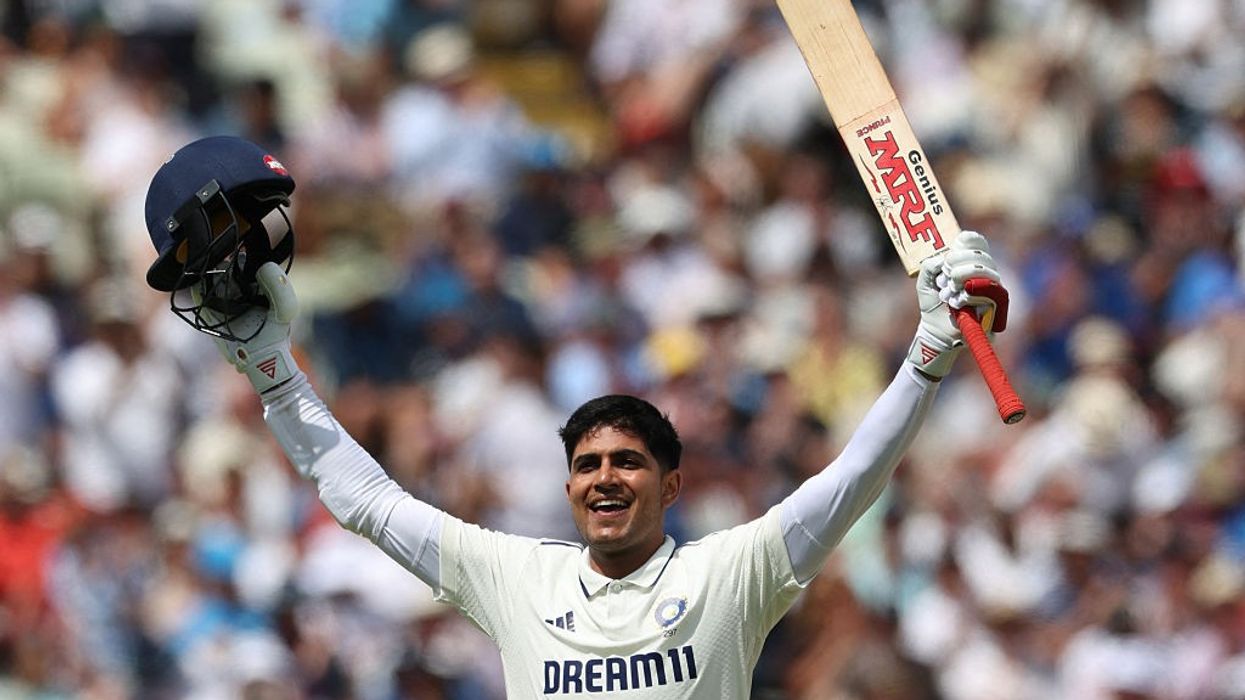PRIME MINISTER Narendra Modi said India will aim to become a developed nation within 25 years as the country marked 75 years of independence on Monday (15), with the leaders of Britain, the US and France sending congratulatory messages.
In his traditional address to the nation from Delhi’s historic Red Fort, Modi said Indians should shed “colonialism in our minds and habits” and urged young people to “aim big” and give their best years for the cause of the country.
India is the world’s sixth-largest economy and is expected to grow at more than seven per cent in the current fiscal year ending in March 2023, the fastest among major economies.
The World Bank currently categorises India as a lower-middle income economy – a classification meant for countries with a gross national income per capita of between $1,086 (£902) and $4,255 (£3,534.5). High income countries, like the United States, have a per capita income of $13,205 (£10,969) or more. “We must turn India into a developed country in the next 25 years, in our lifetime,” said Modi in a 75-minute-speech in Hindi.
“It’s a big resolution, and we should work towards it with all our might.”
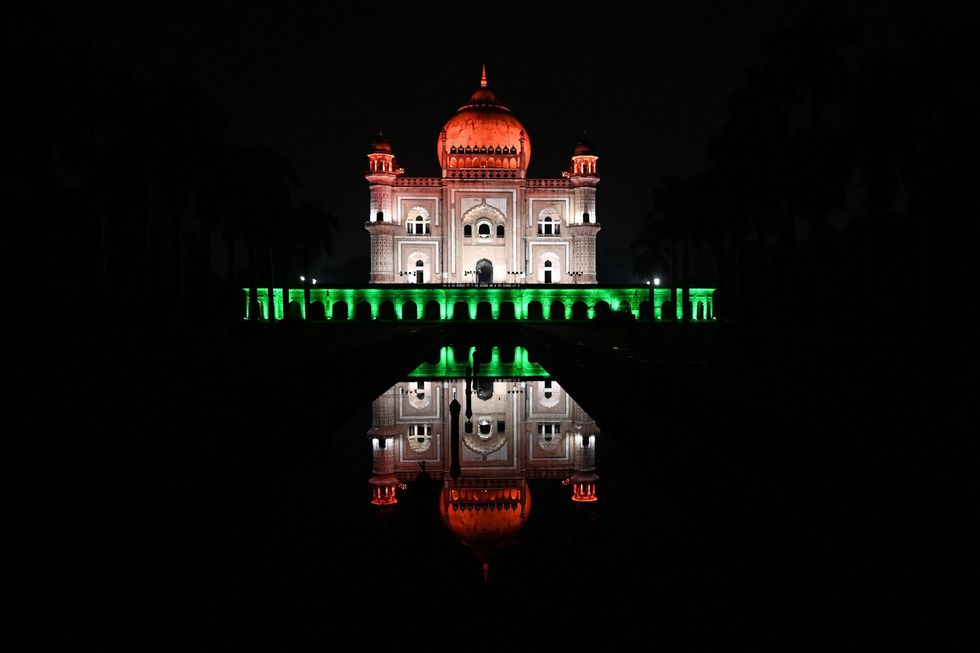
Many experts say India’s economy could expand to become the world’s third-largest by 2050 after the United States and China, although per capita income, currently around $2,100, may remain low compared to many countries.
With about 1.4 billion people, India is expected to surpass China as the world’s most populous country next year.
Wearing a cream-coloured turban speckled with the colours of the Indian flag, Modi, 71, also said India should crush the “termite” of corruption and nepotism, follow an “India first” mantra and ensure that “in speech and conduct, we do nothing that lowers a woman’s dignity”.
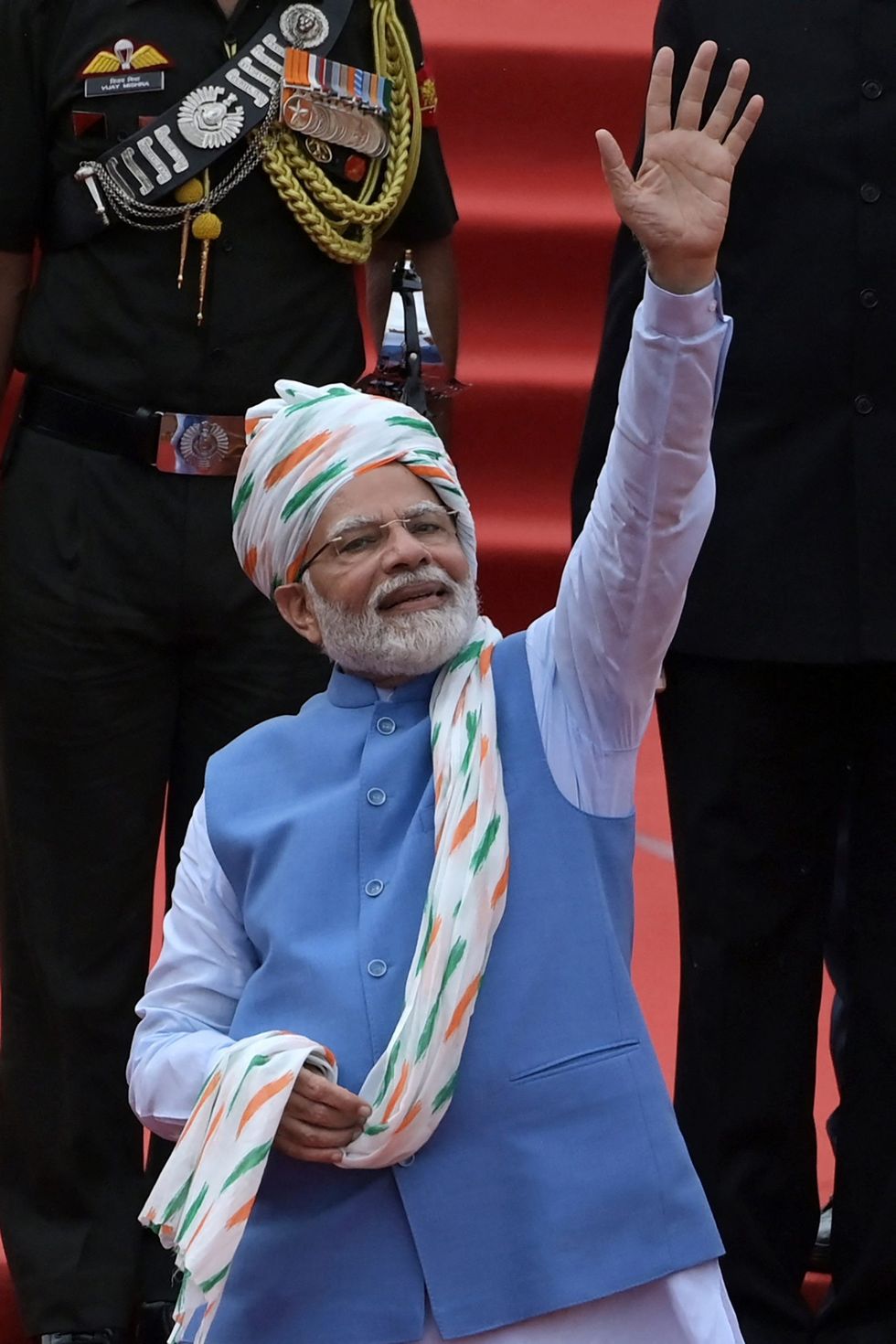
“Self-reliant India is the responsibility of every citizen, every government, every unit of society,” he said.
He urged Indians to shed “colonialism in our minds and habits” and said, “Hundreds of years of colonialism has restricted our sentiments, distorted our thoughts.
“When we see even the smallest thing related to colonialism in us or around us, we have to be rid of it.”
Modi said India’s growth story continued despite terrorism and “proxy wars” and natural calamities and described the country’s diversity as an “invaluable strength”. “India is the mother of democracy. When those with democracy in mind undertake their course with this resolve, the biggest of the empires in the world fall,” Modi added.
Millions of Indians celebrated the anniversary by unfurling the flag at their homes and by singing the national anthem, while presidents and prime ministers from across the world sent messages to mark the milestone anniversary.
British prime minister Boris Johnson marked the day with a throwback image from Sabarmati Ashram in Gujarat during his visit to India in April this year. “Congratulations to the people of India on 75 years of independence,” Johnson said.
“During my recent visit to Gujarat and New Delhi I saw the thriving ‘living bridge’ between our countries. I look forward to seeing these bonds go from strength to strength in the next 75 years.”
Johnson posted his message on social media, with an image of him paying tribute to Mahatma Gandhi in Ahmedabad.
Opposition Labour party leader Sir Keir Starmer also conveyed his Independence Day wishes on Twitter.
“I’m proud of Labour party’s role in supporting India to gain independence,” Sir Keir said in his video message.
“Our 1945 manifesto made clear our commitment to Indian self-government. And in 1947, Clement Attlee, as Labour Prime Minister, passed the Indian Independence Act. Since then, Labour has been at the forefront of promoting values of internationalism and cooperation abroad while building an inclusive society at home. Today we celebrate the vibrant, multi-faith democracy that India has become,” he said in the video, alongside images from his visits to temples in the UK.
During a flag-hoisting ceremony at the Indian High Commission in central London, the acting high commissioner of India, Sujit Ghosh, read from India’s newly elected president Droupadi Murmu’s address to the nation.
The traditional Independence Day celebrations included a rendition of the national anthem Jana Gana Mana and patriotic songs.
The 75th anniversary celebrations in the UK also included the arrival of INS Tarangini at the West India Docks at Canary Wharf in east London, welcomed with an enthusiastic diaspora turnout last Sunday (14).
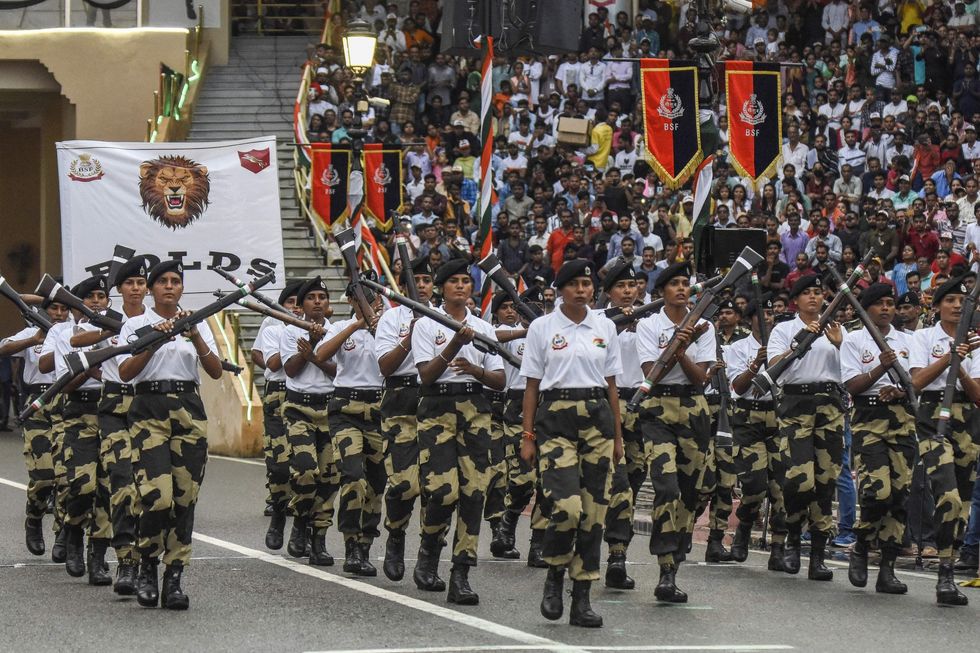
The Indian Navy tall sailing ship will be based at the Thames Quay until Thursday (18) and hosted a special Independence Day celebration on Monday (15) evening.
Home secretary Priti Patel said the UK “strongly values its relationship with India” and noted the relationship is about “far more than trade, business and economics”. “We have strong cultural and family ties that run deep,” Patel said, adding, “The diaspora in the UK is proud of its heritage and values and this anniversary also reminds us of the incredible contributions they make to life in the UK across all parts of our society and economy.”
Britain and India are working on securing a free trade agreement by October and Patel said “both countries are working hard” to finalise it.
“Bilateral trade between the UK and India has grown to over £25 billion a year in goods and services and there is potential for this to grow much larger in the future,” the home secretary added.
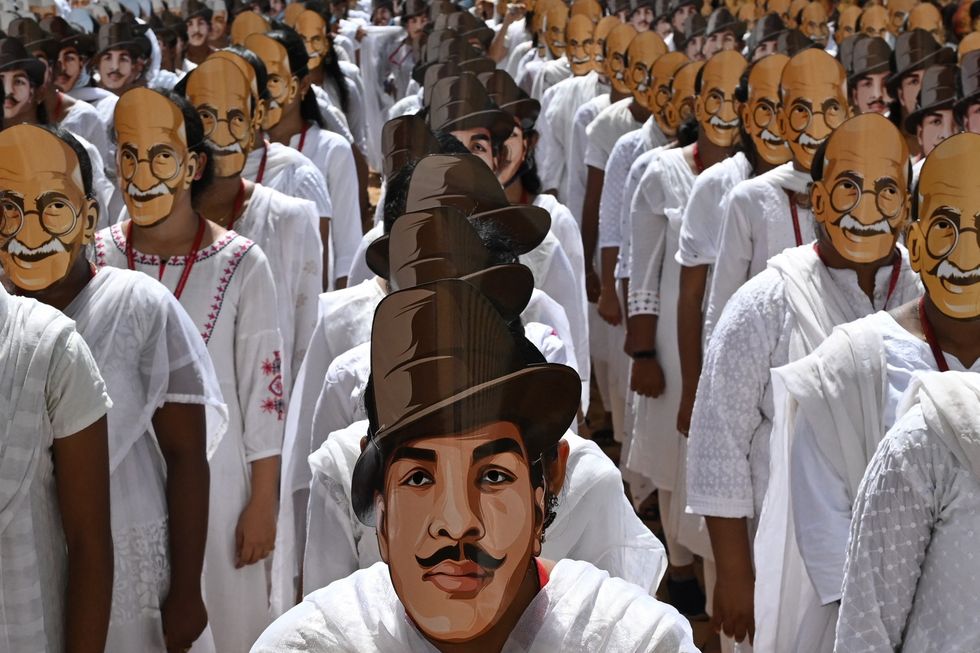
There were messages from world leaders, too. US president Joe Biden recalled Mahatma Gandhi’s “enduring message of truth and non-violence” to honour 75 years of India’s democratic journey.
This year, the US and India also celebrate the 75th anniversary of diplomatic relations, Biden said, as he noted India and the United States are “indispensable partners”. “I am confident that in the years ahead our two democracies will continue to stand together to defend the rules-based order; foster greater peace, prosperity and security for our people; advance a free and open Indo-Pacific; and together address the challenges we face around the world,” Biden said.
“The vibrant Indian-American community in the United States has made us a more innovative, inclusive, and stronger nation,” the president added.
French president Macron took to Twitter to congratulate Modi and Indian nationals. “Dear friend @NarendraModi, dear people of India, congratulations on your Independence Day! As you proudly celebrate India’s stunning achievements in the past 75 years, you can count on France to always stand by your side,” Macron tweeted.
In his message, Australian prime minister Anthony Albanese recalled his fond memories of his travels to India. Albanese said he was “strongly committed to deepening our partnership in the spirit of respect, friendship and cooperation”.
“On the first Independence Day in 1947, when prime minister Jawaharlal Nehru called for his people to join with confidence in the adventure of their new independence, the world could not have imagined how profoundly India would heed his call,” the Australian prime minister said. “The emergence of the world’s largest democracy and the achievements made by independent India have been remarkable,” Albanese said.
India and Australia signed an interim Economic Cooperation and Trade Agreement (ECTA) on April 2 under which Canberra would provide duty-free access in its market for over 95 per cent of Indian goods such as textiles, leather, jewellery and sports products.
The agreement will help in boosting bilateral trade from $27 billion (£22.35bn) to $45-50bn in the next five years. “All Australians applaud India’s successes and the many achievements that define this great country and its people,” he said.
In his message Russia’s president Putin said, “India rightfully enjoys considerable prestige on the world stage and plays an important constructive role in resolving pressing issues on the international agenda. Russian-Indian relations are developing in the spirit of the special and privileged strategic partnership.
“Moscow and New Delhi are cooperating successfully in various areas, effectively interacting within the framework of the UN, BRICS, SCO and other multilateral structures.”
Describing India as an “innovation superpower changing the world for the better”, Israeli prime minister Lapid said his country wanted to be a part of India’s emerging story.
“India is a proud democracy rooted in deep history and tradition. It is also an innovation superpower changing the world for the better,” Lapid said in a video
posted on his Twitter handle.
“That’s why Israelis love India and Indian people. That’s why tens of thousands of Israelis visit India each year,” he noted.
Highlighting that India and Israel are marking 30 years of diplomatic relations as well this year, the Israeli prime minister emphasised on the launch of the groundbreaking I2U2 forum comprising India, Israel, the UAE, and the US.
“As we celebrate all that India has achieved over the past 75 years, we look forward to the next 75 and beyond. We look forward to seeing the next chapter in India’s wonderful story unfold, and we are excited to be a part of the story as a partner, ally and friend,” he said. (With agencies)














